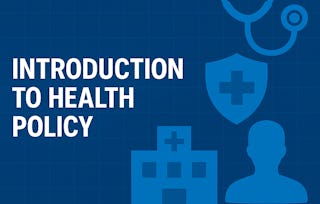Dieser MOOC ist der erste seiner Art, da er kritische Fragen im Zusammenhang mit Drogen aus einem multidisziplinären, gesundheits- und menschenrechtsbasierten Ansatz heraus behandelt. Im Laufe des Kurses werden Sie eine Reihe von Fragen behandeln, darunter: Was sind Drogen und warum werden sie kontrolliert? Welchen Nutzen und Schaden hat der Drogenkonsum? Wie kann die öffentliche Gesundheitspolitik den Drogenkonsum bekämpfen?

Drogen, Drogenkonsum, Drogenpolitik und Gesundheit

Drogen, Drogenkonsum, Drogenpolitik und Gesundheit



Dozenten: Michel Kazatchkine
37.338 bereits angemeldet
Bei enthalten
274 Bewertungen
Kompetenzen, die Sie erwerben
- Kategorie: Gemeinschaft Gesundheit
- Kategorie: Öffentliche Gesundheit
- Kategorie: Gesundheitspolitik
- Kategorie: Gesundheitspflege
- Kategorie: Entwicklung der Politik
- Kategorie: Ethik im Gesundheitswesen
- Kategorie: Rechtliches Risiko
- Kategorie: Pharmakologie
- Kategorie: Soziale Gerechtigkeit
- Kategorie: Politische Analyse
- Kategorie: Substanzmissbrauch
- Kategorie: Öffentliche Politiken
- Kategorie: Internationale Beziehungen
- Kategorie: Befürwortung
- Der Fähigkeiten-Abschnitt ist eingeklappt. 9 von 14 Fähigkeiten werden angezeigt.
Wichtige Details

Zu Ihrem LinkedIn-Profil hinzufügen
Erfahren Sie, wie Mitarbeiter führender Unternehmen gefragte Kompetenzen erwerben.

In diesem Kurs gibt es 6 Module
Willkommen zu Modul 1! Das Material dieser Woche befasst sich zunächst mit scheinbar einfachen Fragen wie: "Was sind Drogen? " und "Warum konsumieren Menschen Drogen? "Anschließend geht es um die Frage: "Warum werden Drogen international kontrolliert? "Wie Sie sehen werden, bildet die Antwort auf diese Frage einen der Grundsteine für den Rest des Kurses. Sie werden lernen, welche rechtlichen Elemente den internationalen Rahmen für die Drogenkontrolle bilden und was dies für die Länder bedeutet, die auf der ganzen Welt unterschiedliche Drogenpolitiken einführen. Wenn Sie diese Woche abgeschlossen haben, werden Sie in der Lage sein: zu erklären, was Drogen und kontrollierte Substanzen sind; die Hauptelemente des internationalen Drogenkontrollrahmens zu beschreiben und die Vielfalt der nationalen Drogenpolitiken im Rahmen eines einheitlichen internationalen Drogenkontrollrahmens zu erkennen. Wir hoffen, dass Sie bereit sind, das interessante und breit gefächerte Material, das wir für Sie vorbereitet haben, durchzuarbeiten. Wir ermutigen Sie auch, so viele der Fragen zu beantworten, die wir im Laufe der Woche im Video (oder einzeln) gestellt haben, und freuen uns auf Ihr Feedback! Wir wünschen Ihnen eine großartige erste Woche, in der Sie mehr über Drogen und den internationalen Rahmen der Drogenkontrolle erfahren! Mit freundlichen Grüßen, Das Team Drogen, Drogenkonsum, Drogenpolitik und Gesundheit
Das ist alles enthalten
10 Videos5 Lektüren4 Aufgaben2 Diskussionsthemen
Willkommen zu Modul 2! Diese Woche dreht sich alles um Epidemiologie und Drogenkonsum. Es scheint ziemlich offensichtlich zu sein, dass wir, wenn wir den Drogenkonsum auf der ganzen Welt betrachten, wissen müssen, wovon wir sprechen; aber wie Sie sehen werden, ist das aus verschiedenen Gründen nicht immer so einfach. Sie werden auch von Menschen hören, die Drogen konsumieren und Ihnen von der Stigmatisierung erzählen, der sie oft ausgesetzt sind, sowie von Wissenschaftlern, die ihr Wissen darüber teilen, wie Drogen nach ihren Schäden klassifiziert werden sollten und welchen Nutzen und Schaden die Einnahme bestimmter Drogen hat. Sie werden auch erfahren, was Abhängigkeit wirklich bedeutet und welche gesundheitlichen Probleme manchmal mit bestimmten Drogen und Formen des Drogenkonsums verbunden sein können. Am Ende des Moduls werden Sie in der Lage sein, : - Fakten, Zahlen und falsche Vorstellungen über den Drogenkonsum wiedergeben; - Drogen und ihre relativen Schäden kategorisieren; - problematischen Drogenkonsum und -abhängigkeit und ihre negativen Folgen für den Einzelnen und die Gemeinschaft beschreiben. Vergessen Sie nicht, einen Blick auf die zusätzlichen optionalen Ressourcen zu werfen. Wir hoffen, dass diese Woche einige Ihrer Vorstellungen über Drogenkonsum und deren Nutzen und Schaden in Frage stellt und dass Sie eine Menge über Fragen im Zusammenhang mit Drogen und Gesundheit lernen. Mit freundlichen Grüßen, Das Team Drogen, Drogenkonsum, Drogenpolitik und Gesundheit
Das ist alles enthalten
10 Videos2 Lektüren4 Aufgaben1 Diskussionsthema
Willkommen zu Modul 3, in dem es um öffentliche Gesundheit, Schadensbegrenzung und Behandlung geht. In diesem Modul werden Sie sehen, wie sich die öffentliche Gesundheitspolitik mit dem Drogenkonsum befasst; Sie werden mit verschiedenen Konzepten und Instrumenten der Schadensminimierung vertraut gemacht und erfahren auch etwas über die Geschichte. Sie werden viel über die Schadensminimierung selbst erfahren und sehen, wie sie sich in die bestehende Gesundheitspolitik einfügt und wie die Politik Prävention, Schadensminimierung und Behandlung auf komplementäre Weise einbeziehen kann. Am Ende des Moduls werden Sie in der Lage sein, : - die Konzepte und Instrumente der Schadensminimierung aufzählen, - die Behandlungsmöglichkeiten bei Abhängigkeit einschätzen und - erklären, wie Prävention, Schadensminimierung und Behandlung einander ergänzen Wir hoffen, dass Sie in dieser Woche ein gutes Gefühl dafür bekommen haben, was Schadensminimierung ist und wie sie sich in eine breiter angelegte Gesundheitspolitik einfügt. Diese Woche baut auch auf dem auf, was Sie in Modul 2 gelernt haben, und zwar im Hinblick auf bestimmte Gesundheitsprobleme und die Frage, wann eine Behandlung der Abhängigkeit notwendig sein kann. Vergessen Sie nicht, die Liste der Pflichtlektüre durchzugehen und sich die optionalen zusätzlichen Ressourcen anzusehen. Mit freundlichen Grüßen, Das Team für Drogen, Drogenkonsum, Drogenpolitik und Gesundheit
Das ist alles enthalten
11 Videos3 Lektüren3 Aufgaben3 Diskussionsthemen
Willkommen zu Modul 4, das sich mit der Hinterfragung der Prohibitionspolitik befasst. In diesem Modul werden Sie entdecken, dass die meisten Drogenpolitiken in der Welt auf der Durchsetzung von Prohibitionsgesetzen und der Kriminalisierung des Drogenkonsums beruhen. Sie werden sehen, dass diese Politiken eine Reihe negativer Folgen für die Gesundheit der Menschen und ihre Menschenrechte haben. Dieses Modul wird auch die Strafverfolgung näher beleuchten und aufzeigen, wie sie zur Verbesserung der Gesundheit beitragen kann. Sie werden etwas über den Rahmen der Menschenrechte und den Rahmen der Drogenkontrolle erfahren und sehen, wie Menschenrechtsverletzungen, die aus der Umsetzung einer prohibitionistischen Drogenpolitik resultieren, weltweit aussehen. Schließlich werden Sie auch sehen, dass die Drogenpolitik mit der Entwicklung und der Umwelt zusammenhängt, und zwar meistens nicht auf eine gute Art und Weise, da die Prohibition Gewalt, Verbrechen und Korruption anheizt und die Entwicklung behindert. Am Ende dieses Moduls werden Sie in der Lage sein: - zu beurteilen, inwieweit die Prohibitionspolitik bei der Reduzierung der Drogenproduktion, des Drogenhandels und des Drogenkonsums erfolgreich war oder gescheitert ist; - die negativen Auswirkungen der Prohibitionspolitik auf die Gesundheit, die Menschenrechte und die Entwicklung zu beschreiben; - zu erkennen, wie die Prohibitionspolitik das organisierte Verbrechen und den Drogenhandel anheizt. Wir hoffen, dass Sie in dieser Woche einen wertvollen Einblick in die Realität der Prohibitionspolitik für Menschen in Gemeinden auf der ganzen Welt erhalten und dass Sie die Folgen dieser Politik für die Menschenrechte, die Gesundheit und die Entwicklung erkennen können. Wir hoffen, dass Ihnen auch die wichtige Lektüre und die optionalen zusätzlichen Ressourcen gefallen, die wir für Sie vorbereitet haben. Mit freundlichen Grüßen, Das Team Drogen, Drogenkonsum, Drogenpolitik und Gesundheit
Das ist alles enthalten
20 Videos2 Lektüren2 Aufgaben3 Diskussionsthemen
Willkommen zu Modul 5, das sich mit dem Zugang zu kontrollierten Medikamenten befasst. In dieser Woche werden Sie erfahren, wie die internationale Einteilung von Arzneimitteln funktioniert, einige der wichtigsten Hindernisse für den Zugang zu wichtigen Arzneimitteln kennenlernen und sich speziell mit der Opioid-Epidemie befassen, die derzeit in den Vereinigten Staaten wütet. Die medizinische Verwendung von Cannabis und Cannabinoiden ist ebenfalls ein Schwerpunkt dieser Woche und ein Thema, das derzeit in einer Reihe von Ländern auf der ganzen Welt besonders relevant ist. Am Ende dieses Moduls werden Sie in der Lage sein: - die Hindernisse für den Zugang zu kontrollierten Arzneimitteln zu erkennen und die Herausforderungen zu diskutieren, die sich durch Epidemien von verschreibungspflichtigen Arzneimitteln ergeben; - und die aktuellen Probleme im Zusammenhang mit der medizinischen Verwendung von Cannabis und Cannabinoiden zu untersuchen. Wir wünschen Ihnen viel Spaß mit dieser Woche, die sich in Bezug auf ihr spezifisches Thema etwas von den anderen Modulen unterscheidet, aber viele wichtige Informationen liefert, um den internationalen Rahmen der Drogenkontrolle und Fragen im Zusammenhang mit Drogen, Drogenkonsum und Drogenpolitik so gut wie möglich zu verstehen. Mit freundlichen Grüßen, Das Team Drogen, Drogenkonsum, Drogenpolitik und Gesundheit
Das ist alles enthalten
7 Videos2 Lektüren5 Aufgaben
Willkommen bei Modul 6! Herzlichen Glückwunsch, Sie haben es zum letzten Modul des Kurses geschafft! In dieser Woche geht es darum, wie die prohibitionistische Drogenpolitik gescheitert ist und dass es Zeit für eine Reform der Drogenpolitik ist. Zu den Höhepunkten gehört, dass die Begriffe Entkriminalisierung, Legalisierung und Regulierung für Sie aufgeschlüsselt werden, damit Sie wirklich verstehen, was die Begriffe bedeuten und wie sich die Länder in Bezug auf ihre drogenpolitischen Ziele auf sie zubewegen können. Ein großer Teil dieses Moduls befasst sich auch mit der Frage, wie Sie sich in der Drogenreformbewegung engagieren können: Sie werden von Menschen hören, die damit vertraut sind: von zivilgesellschaftlichen Akteuren, die vor Ort arbeiten, bis hin zu Netzwerken von Menschen, die Drogen konsumieren, bevor Sie selbst darüber nachdenken können, wie und was Sie tun können, um sich der Drogenreformbewegung anzuschließen. Am Ende dieses Moduls werden Sie in der Lage sein: - Beispiele für die Entkriminalisierung und Regulierung von Drogen zu nennen und die Ergebnisse zu diskutieren; - die Einbeziehung der Zivilgesellschaft und von Menschen, die Drogen konsumieren, in die Gestaltung und Bewertung der Drogenpolitik zu verteidigen; - Ihre potenzielle Rolle in der weltweiten Drogendebatte zu reflektieren und zu entwickeln.Die abschließende Bewertung besteht aus einem Peer-Review, bei dem Sie die Möglichkeit haben, darüber nachzudenken, wie das, was Sie im Laufe des Kurses gelernt haben, auf die Situation in Ihrem eigenen Land in Bezug auf die Drogenpolitik anwendbar ist (insbesondere in Bezug auf den Schutz der Menschenrechte und die Förderung der Gesundheit); und darüber nachzudenken, wie Menschen, die Drogen konsumieren, wahrgenommen und/oder behandelt werden, und zu überlegen, welche Rolle Sie bei dieser möglichen Reform spielen könnten. Vergessen Sie bitte nicht, die Liste der Pflichtlektüre und einige der optionalen zusätzlichen Ressourcen durchzugehen, die Ihnen zur Verfügung stehen. Wir hoffen, dass Ihnen die sechs Module gefallen haben und freuen uns auf Ihre Bewertungen sowie auf Ihr Feedback. Mit freundlichen Grüßen, Das Team für Drogen, Drogenkonsum, Drogenpolitik und Gesundheit
Das ist alles enthalten
13 Videos2 Lektüren1 Aufgabe1 peer review1 Diskussionsthema
Dozenten



Mehr von Öffentliche Gesundheit entdecken
 Status: Kostenloser Testzeitraum
Status: Kostenloser TestzeitraumJohns Hopkins University
 Status: Vorschau
Status: VorschauImperial College London
 Status: Vorschau
Status: VorschauO.P. Jindal Global University
 Status: Vorschau
Status: VorschauUniversity of Copenhagen
Warum entscheiden sich Menschen für Coursera für ihre Karriere?

Felipe M.

Jennifer J.

Larry W.

Chaitanya A.
Bewertungen von Lernenden
- 5 stars
82,11 %
- 4 stars
13,86 %
- 3 stars
2,91 %
- 2 stars
0,36 %
- 1 star
0,72 %
Zeigt 3 von 274 an
Geprüft am 21. Sep. 2020
This course is really good&it gives lot of information about drug uses&drug policy......,it's helpful to my studies...
Geprüft am 29. Dez. 2020
This course is mainly about narcotic drugs (psychoactive substances) and drug policies in the world. Some speakers are really good.
Geprüft am 30. Aug. 2021
This course covers all the critical issues related to drugs from a multidisciplinary, health and human rights-based approach. it was really helpful to get the basics clear

Neue Karrieremöglichkeiten mit Coursera Plus
Unbegrenzter Zugang zu 10,000+ Weltklasse-Kursen, praktischen Projekten und berufsqualifizierenden Zertifikatsprogrammen - alles in Ihrem Abonnement enthalten
Bringen Sie Ihre Karriere mit einem Online-Abschluss voran.
Erwerben Sie einen Abschluss von erstklassigen Universitäten – 100 % online
Schließen Sie sich mehr als 3.400 Unternehmen in aller Welt an, die sich für Coursera for Business entschieden haben.
Schulen Sie Ihre Mitarbeiter*innen, um sich in der digitalen Wirtschaft zu behaupten.
Häufig gestellte Fragen
Um Zugang zu den Kursmaterialien und Aufgaben zu erhalten und um ein Zertifikat zu erwerben, müssen Sie die Zertifikatserfahrung erwerben, wenn Sie sich für einen Kurs anmelden. Sie können stattdessen eine kostenlose Testversion ausprobieren oder finanzielle Unterstützung beantragen. Der Kurs kann stattdessen die Option "Vollständiger Kurs, kein Zertifikat" anbieten. Mit dieser Option können Sie alle Kursmaterialien einsehen, die erforderlichen Bewertungen abgeben und eine Abschlussnote erhalten. Dies bedeutet auch, dass Sie kein Zertifikat erwerben können.
Wenn Sie ein Zertifikat erwerben, erhalten Sie Zugang zu allen Kursmaterialien, einschließlich der benoteten Aufgaben. Nach Abschluss des Kurses wird Ihr elektronisches Zertifikat zu Ihrer Erfolgsseite hinzugefügt - von dort aus können Sie Ihr Zertifikat ausdrucken oder zu Ihrem LinkedIn-Profil hinzufügen.
Ja. Für ausgewählte Lernprogramme können Sie eine finanzielle Unterstützung oder ein Stipendium beantragen, wenn Sie die Anmeldungsgebühr nicht aufbringen können. Wenn für das von Ihnen gewählte Lernprogramm eine finanzielle Unterstützung oder ein Stipendium verfügbar ist, finden Sie auf der Beschreibungsseite einen Link zum Antragsformular.
Weitere Fragen
Finanzielle Unterstützung verfügbar,
¹ Einige Aufgaben in diesem Kurs werden mit AI bewertet. Für diese Aufgaben werden Ihre Daten in Übereinstimmung mit Datenschutzhinweis von Courseraverwendet.


